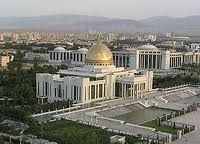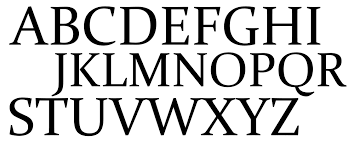Viewing results 1 - 6 of 143
BISHKEK (TCA) — China is increasing its economic, and political, influence in Central Asia despite the deep-rooted anti-Chinese sentiments in the post-Soviet domain. To further advance in Central Asia, Beijing needs to win the hearts and minds of local populations as well. We are republishing this article by Paul Goble on the issue, originally published by The Jamestown Foundation’s Eurasia Daily Monitor: Continue reading
ASHGABAT (TCA) — The U.S. Embassy in Ashgabat, Turkmenistan is sponsoring a fourth and final trip by four musicians from the United States to work with the Turkmen National Conservatory, culminating in a joint concert on December 23, at 6:30 p.m. at the Magtymguly National Music and Drama Theatre. The concert will feature American classics, holiday music, and Turkmen orchestral pieces. Concert admission is free and open to everyone, the Embassy said. Continue reading
ASHGABAT (TCA) — U.S. Chargé d’Affaires Kami Witmer on November 28 celebrated the completion of a joint project with the National Conservatory of Turkmenistan to restore and digitize recordings of traditional Turkmen music. In 2012 the U.S. Embassy in Ashgabat awarded a grant to the National Conservatory to help preserve endangered music for posterity and use in music schools and other educational institutions, the Embassy said. Continue reading
ASTANA (TCA) — Kazakhstan President Nursultan Nazarbayev signed an executive order on October 27 tasking his government to prepare the Kazakh alphabet for a transition to Latin letters from Cyrillic ones by 2025, Sputnik news agency reports. Continue reading
BISHKEK (TCA) — Since the breakup of the Soviet Union, Moscow has taken efforts to retain its political, and economic, influence in the post-Soviet republics, including in Central Asia. Preserving the use of the Cyrillic alphabet has been a part of Russia’s policy aimed at keeping the region’s states within its sphere of influence. We are republishing this article by Paul Goble on the issue, originally published by The Jamestown Foundation’s Eurasia Daily Monitor: Continue reading
BISHKEK (TCA) — The language issue has always been a sensitive one in the non-Russian republics of the USSR and now in the post-Soviet independent countries, especially in Central Asia. Moscow has always advocated that the Russian language retain its strong position in such countries as Kazakhstan, Kyrgyzstan, and Tajikistan. Today, however, Russia is facing the language problem within its own borders — in the Turkic-speaking republic of Tatarstan, and this problem may have serious implications. We are republishing this article by Paul Goble on the issue, originally published by The Jamestown Foundation’s Eurasia Daily Monitor: Continue reading




